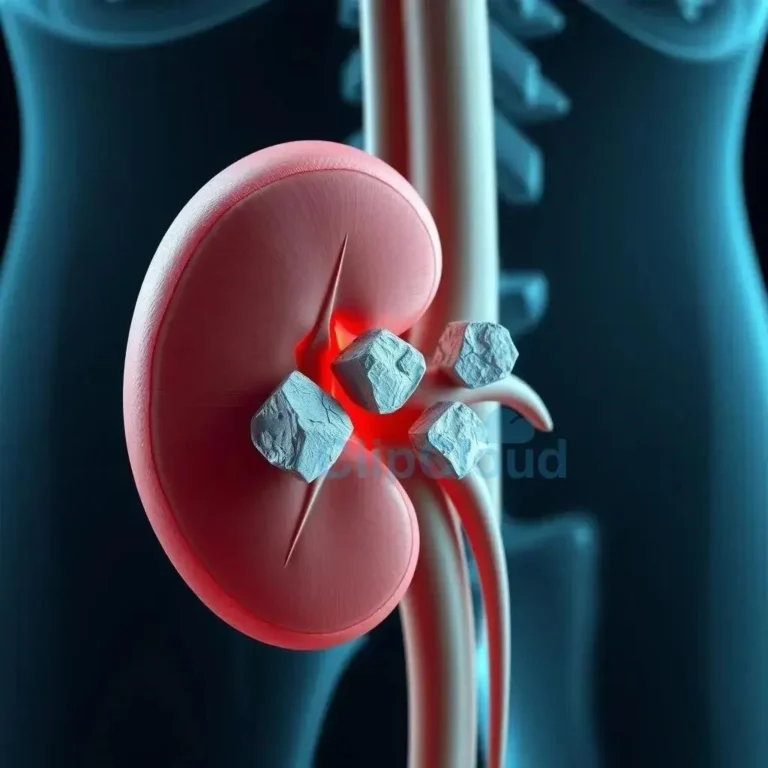Advanced Mental Health and Cognitive Resilience
Mental health and cognitive resilience are intertwined, representing a dynamic interplay between psychological well-being and the brain’s ability to adapt and thrive under pressure. This involves not just surviving challenges, but bouncing back stronger, learning from setbacks, and maintaining optimal brain function throughout life. Cultivating these skills empowers individuals to navigate stress, adversity, and change with greater ease and effectiveness.
Understanding Cognitive Resilience
Cognitive resilience refers to the brain’s remarkable capacity to withstand and recover from challenges, stress, and even trauma. It’s not simply about enduring hardship; it’s about bouncing back stronger, learning from adversity, and maintaining optimal cognitive function even under pressure. This involves a complex interplay of neurological processes, psychological factors, and behavioral strategies. Understanding these components is crucial for developing and strengthening your cognitive resilience.
One key aspect of cognitive resilience is cognitive flexibility. This is the ability to adapt your thinking, switch perspectives, and find creative solutions when faced with obstacles. A flexible mind can navigate changing circumstances with greater ease and avoid getting stuck in rigid thought patterns. Emotional regulation also plays a vital role. Managing emotions effectively, particularly during stressful periods, prevents them from overwhelming cognitive processes and allows for clearer thinking and decision-making.
Stress tolerance is another crucial element. A resilient brain can tolerate a certain degree of stress without experiencing significant impairment in cognitive function. This involves developing coping mechanisms and strategies for managing stress effectively, such as mindfulness practices, exercise, and healthy lifestyle choices. Metacognition, or the ability to think about your own thinking, also contributes to cognitive resilience. By being aware of your thought processes, biases, and emotional responses, you can better regulate them and make more informed decisions.
Furthermore, a sense of purpose and meaning can significantly enhance cognitive resilience. Having a clear sense of purpose provides motivation and direction, making it easier to overcome challenges and persevere through difficult times. Strong social connections and support networks also play a crucial role. Connecting with others provides emotional support, reduces feelings of isolation, and fosters a sense of belonging, all of which contribute to greater resilience.
Cultivating cognitive resilience is an ongoing process that involves developing and strengthening these core components. By focusing on cognitive flexibility, emotional regulation, stress tolerance, metacognition, purpose, and social connections, you can build a more resilient brain that is better equipped to handle life’s inevitable challenges and thrive in the face of adversity.
Building Mental Fortitude
Mental fortitude, a cornerstone of advanced mental health, empowers individuals to navigate challenges with resilience and maintain psychological well-being. It’s about developing the mental strength and emotional resilience to withstand adversity, bounce back from setbacks, and thrive even in demanding circumstances. Cultivating mental fortitude is a proactive process that involves building specific skills and adopting empowering habits.
A key component of mental fortitude is developing a growth mindset. This involves embracing challenges as opportunities for learning and growth, rather than viewing them as threats. Individuals with a growth mindset believe that their abilities and intelligence can be developed through dedication and hard work. This perspective fosters resilience by encouraging perseverance and a willingness to learn from mistakes.
Cultivating self-awareness is equally important. Understanding your strengths, weaknesses, values, and emotional triggers allows you to respond to challenges more effectively. Self-awareness also helps you identify and manage negative thought patterns and self-sabotaging behaviors that can undermine your mental fortitude. Practicing mindfulness can enhance self-awareness by fostering a greater awareness of your thoughts, feelings, and bodily sensations in the present moment.
Building strong coping mechanisms is essential for navigating stressful situations. This involves developing healthy strategies for managing stress, such as exercise, relaxation techniques, and spending time in nature. Effective coping mechanisms help regulate emotions, reduce anxiety, and promote a sense of calm amidst challenges. Setting realistic goals and expectations also contributes to mental fortitude. Setting achievable goals provides a sense of accomplishment and boosts self-confidence, while unrealistic expectations can lead to disappointment and self-doubt.
Furthermore, nurturing positive relationships provides essential social support during difficult times. Connecting with supportive friends, family, or mentors can offer encouragement, perspective, and practical assistance when facing challenges. Building a strong social network fosters a sense of belonging and strengthens resilience. By actively cultivating these elements, individuals can build robust mental fortitude, enhancing their ability to thrive in the face of adversity and maintain optimal mental well-being.
Brain Health Tips for Enhanced Resilience
Boosting brain health is crucial for enhancing cognitive resilience. A healthy brain is better equipped to handle stress, adapt to change, and recover from setbacks. Implementing targeted strategies can significantly improve brain function and build resilience. These include optimizing nutrition, engaging in regular physical activity, prioritizing sleep, and fostering social connections;
Nutrition for Your Brain
Optimal brain function relies heavily on proper nutrition. Just as a car needs the right fuel to perform efficiently, your brain requires specific nutrients to function at its best. A balanced diet rich in brain-boosting foods can significantly enhance cognitive function, improve memory, and bolster resilience against stress and cognitive decline. Making informed food choices is a crucial step towards optimizing brain health.
Antioxidant-rich foods play a vital role in protecting brain cells from damage caused by oxidative stress. Berries, dark chocolate, and leafy greens are excellent sources of antioxidants. Omega-3 fatty acids are essential for brain structure and function, supporting cognitive processes like memory and learning. Fatty fish, such as salmon and tuna, flaxseeds, and walnuts are rich in these beneficial fats. B vitamins are crucial for neurotransmitter production and overall brain health. Leafy greens, legumes, and whole grains are good sources of B vitamins.
Hydration is also paramount for optimal brain function. Water is essential for numerous bodily processes, including nutrient transport and waste removal within the brain. Dehydration can impair cognitive function, leading to difficulties with concentration and memory. Limiting processed foods, sugary drinks, and excessive caffeine is equally important. These substances can negatively impact brain health and contribute to cognitive decline. Prioritizing whole, unprocessed foods is crucial for supporting optimal brain function.
Including foods rich in choline is beneficial for memory and cognitive function. Eggs, liver, and soybeans are good sources of choline, a nutrient essential for the production of acetylcholine, a neurotransmitter involved in memory and learning. Magnesium plays a crucial role in nerve function and stress management. Leafy greens, nuts, and seeds are excellent sources of magnesium. Zinc is important for nerve signaling and cognitive function. Oysters, pumpkin seeds, and chickpeas are good sources of zinc.
By incorporating these brain-boosting foods into your diet, you can provide your brain with the essential nutrients it needs to thrive. A balanced and nutritious diet is a cornerstone of cognitive resilience, supporting optimal brain function, enhancing memory, and protecting against cognitive decline. Making conscious food choices is a powerful investment in your long-term brain health and overall well-being.
Mindfulness and Meditation Practices
Mindfulness and meditation practices offer powerful tools for cultivating cognitive resilience and enhancing overall mental well-being. These practices involve cultivating present moment awareness without judgment, fostering a deeper understanding of your thoughts, emotions, and bodily sensations. By incorporating mindfulness and meditation into your routine, you can strengthen your ability to manage stress, regulate emotions, and enhance your focus and attention.
Mindfulness involves paying attention to the present moment without judgment. This can be practiced throughout the day, whether you’re eating, walking, or simply observing your breath. By bringing your attention to the present, you can reduce rumination about the past or worries about the future, fostering a greater sense of calm and clarity. Meditation often involves focusing on a specific object, such as your breath, a mantra, or a guided visualization. This focused attention helps train the mind to stay present and reduces mental chatter.
Regular mindfulness and meditation practice can bring about numerous benefits for cognitive resilience. Stress reduction is a key benefit, as these practices help regulate the body’s stress response and promote relaxation. Improved emotional regulation is another significant advantage. By increasing awareness of your emotions, you can learn to respond to them more skillfully, reducing reactivity and promoting emotional balance. Enhanced focus and attention are also key outcomes. Mindfulness and meditation strengthen attentional control, improving concentration and reducing distractibility.
Increased self-awareness is another important benefit. By observing your thoughts and emotions without judgment, you gain a deeper understanding of your inner world, including your strengths, weaknesses, and patterns of reactivity. Improved sleep quality can also be a result of regular practice. Mindfulness and meditation can help calm the mind and reduce racing thoughts, promoting more restful sleep. Increased compassion, both for yourself and others, is another potential benefit. By cultivating a sense of acceptance and non-judgment, you can develop greater empathy and understanding.
Incorporating mindfulness and meditation into your daily routine can be a transformative practice for building cognitive resilience and enhancing overall mental well-being. Even a few minutes of daily practice can yield significant benefits, improving your ability to manage stress, regulate emotions, and cultivate a greater sense of presence and peace in your life.
Stress Management Techniques
Effective stress management is crucial for maintaining cognitive resilience and overall well-being. Chronic stress can take a significant toll on both mental and physical health, impacting cognitive function, mood, and overall quality of life. Implementing proactive stress management techniques can help mitigate the negative effects of stress and build resilience to navigate life’s challenges more effectively.
Regular exercise is a powerful stress reliever. Physical activity releases endorphins, which have mood-boosting effects and can help reduce feelings of stress and anxiety. Relaxation techniques such as deep breathing exercises, progressive muscle relaxation, and yoga can help calm the nervous system and promote a sense of relaxation. Spending time in nature has been shown to reduce stress levels and improve mood. Connecting with the natural world provides a sense of peace and tranquility.
Prioritizing sleep is essential for stress management. Adequate sleep allows the body and mind to rest and recover, improving cognitive function and emotional regulation. Maintaining a healthy diet also plays a crucial role. Nourishing your body with whole, unprocessed foods provides the essential nutrients needed to cope with stress effectively. Connecting with supportive individuals can provide emotional support and reduce feelings of isolation during stressful times. Talking to a trusted friend, family member, or therapist can offer valuable perspective and support.
Time management techniques can help reduce stress by improving organization and prioritizing tasks. Effective time management can help you feel more in control of your schedule and reduce feelings of overwhelm. Setting boundaries is crucial for protecting your time and energy. Learning to say no to requests that exceed your capacity can help prevent burnout and maintain a healthy work-life balance. Engaging in hobbies and activities you enjoy provides an outlet for stress relief and promotes a sense of joy and fulfillment. Making time for activities that bring you pleasure can help counterbalance the negative effects of stress.
By incorporating these stress management techniques into your daily routine, you can build resilience to stress, enhance your ability to cope with challenges, and maintain optimal mental and physical well-being. Prioritizing stress management is an investment in your overall health and quality of life, empowering you to navigate life’s ups and downs with greater ease and resilience.






